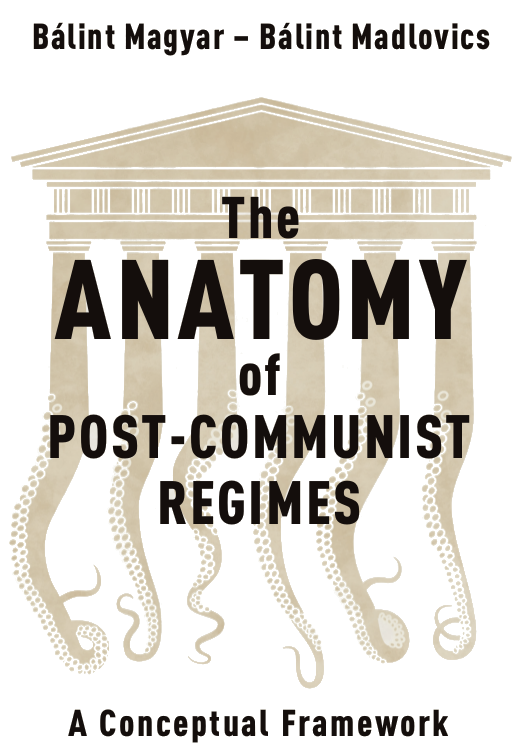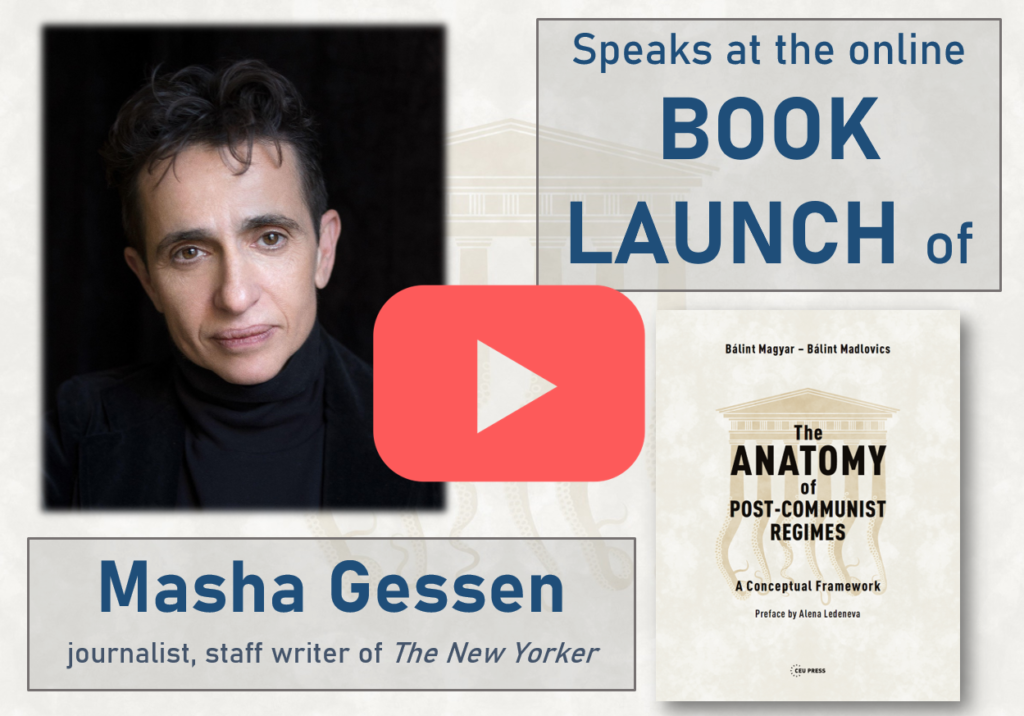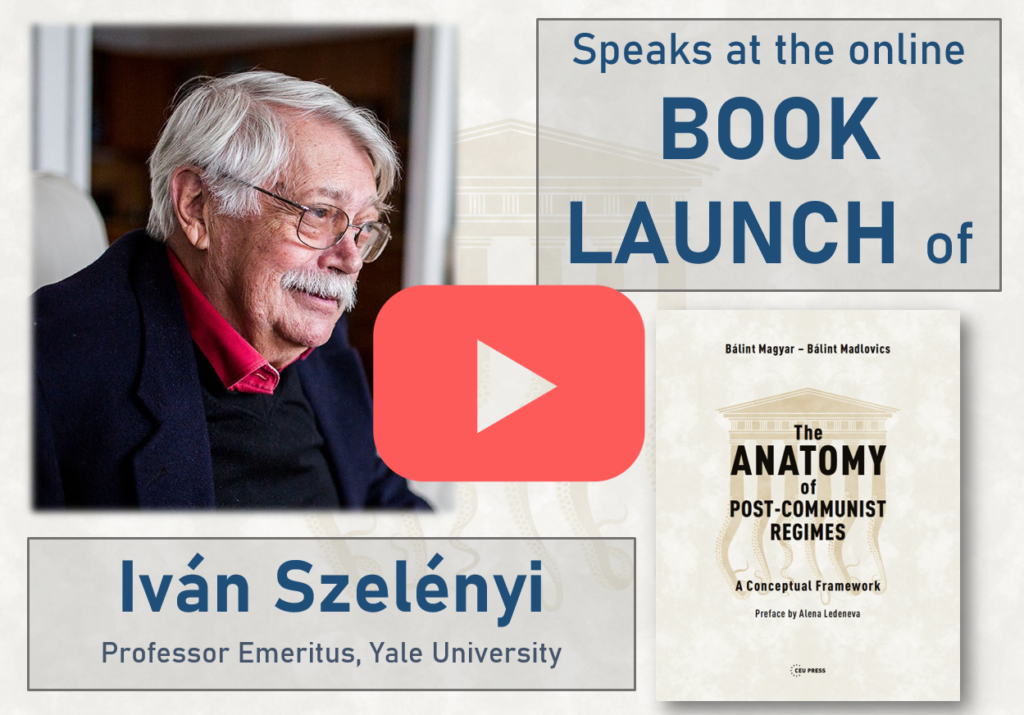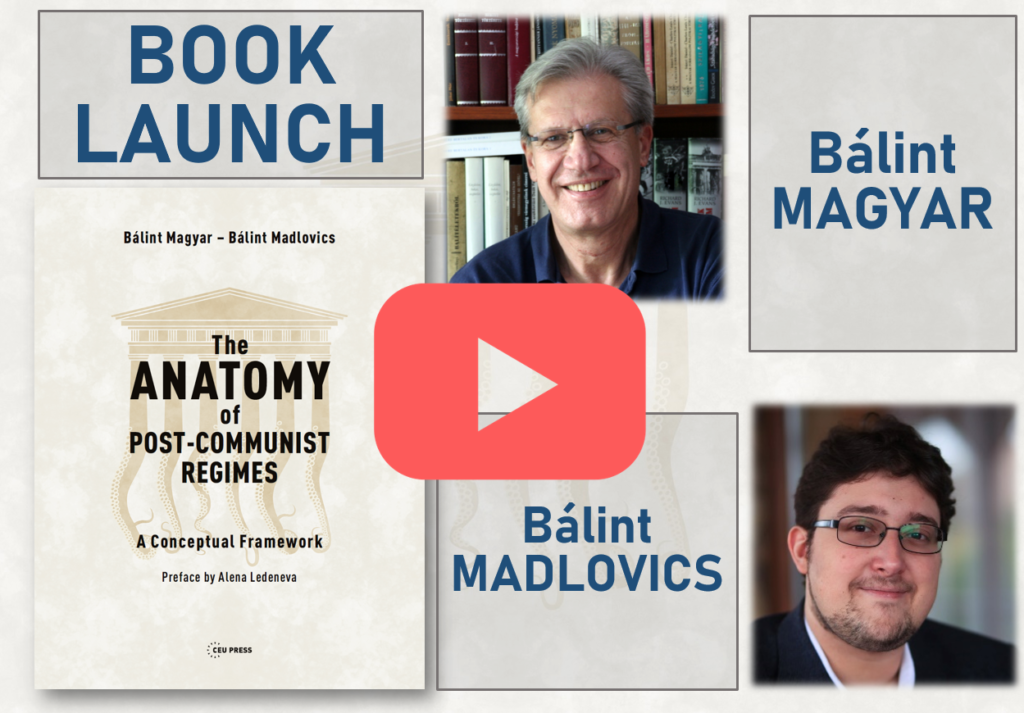Reading this book feels like having the curtains opened, letting the bright light come in. Everything becomes visible and clear. The experience of living in mushy political reality gives way to unsparing, exact analysis. What comes into focus may not be pretty, but having it illuminated, ordered, and explained is incomparable.
- Masha Gessen, journalist and author of The Future is History
- Masha Gessen, journalist and author of The Future is History
This ambitious book provides not only a better vocabulary, but a whole new grammar for describing the political regimes that emerged in communism’s wake. Exposing how conventional frameworks continually mislead, Magyar and Madlovics demonstrate the potential for innovative theory to yield piercing new insights into the reality of politics in the postcommunist world and, indeed, beyond.
- Henry Hale, Professor of Political Science and International Affairs, George Washington University
The authors adopt a structuralist approach, driven by language. They tackle complexity and multidimensionality of post-communist regimes not simply by cataloguing existing concepts but by relating them to each other and constructing a broader, overarching framework: a new language for post-communist regimes. […] The conceptual, methodological and semantical innovations will undoubtedly produce an abundance of reactions among scholars, students and readers yearning for orientation in the complex world of post-communist realities..
- Alena Ledeneva, Professor of Politics and Society, UCL School of Slavonic and East European Studies
Many social scientists and historians have been puzzled by what is now often called a ‘global democratic recession’. This conceptually highly innovative analysis provides terms and theories that are crucial for making sense of our historical moment.
- Jan-Werner Mueller, Professor of Politics, Princeton University
- Jan-Werner Mueller, Professor of Politics, Princeton University
I have been in the business of ‘varieties of post-communist countries’ since the early 1990s. Nevertheless this book is better and more important than anything I have done during the past 30 years in two important respects: 1) it carries a far greater number of countries with the most impressive empirical knowledge of their changes of the past decades; 2) it has a far more sophisticated theoretical framework than anything I could develop.
- Iván Szelényi, Professor Emeritus of Sociology, Yale University
The book is an impressive freight of scholarly work that leaves behind the terminological problems of earlier strains of post-communist research. […] Clarifying and systematising a conceptual framework that rigorously covers much of post-communist state and society facilitates finer analysis and research that can be more easily related to other studies. (Insofar as its new language reduces semantic confusion, the book's value cannot be understated).
- Michael C. Zeller in Democratization
An ambitious and colossal toolkit […] for the description of the entire post-communist world. […] This massive work offers a comprehensive set of tools appropriate for the exact description of systems and regimes.
- Sándor Révész in Mozgó Világ
- Sándor Révész in Mozgó Világ





